- Home
- Francine Mathews
Blown Page 6
Blown Read online
Page 6
Spying had been his proxy for deeper motives: the desire to penetrate, to thieve, to take something for nothing. Now that he was lapped in his final posting, the morbidity of Headquarters, insomnia was his passport to memory. His dark kingdom.
Lola never even knew at what hour he left her bed on these midnight excursions. Would she, he wondered, really care?
She was his third wife and the current source of his wealth: a twenty-six-year-old studio executive’s daughter born and bred in L.A. She’d married Scottie two years before, after a whirlwind romance in which he’d managed to figure as James Bond, Sean Connery, and the daddy she’d always yearned to please. They met during a period of uncharacteristic earnestness on Lola’s part: an internship on Capitol Hill wangled by her father, who’d contributed heavily to the last Republican campaign. She was twenty-three then, blond and sinuous and fresh as a newly opened daisy. Scottie had noticed her during one of his routine pilgrimages to the Senate Intelligence Committee; he’d invited her for drinks. Beguiled her with delicious allusions to episodes of daring and danger. Fucked her senseless, later that month, on Bermuda’s pink sand.
With little in the way of education and nothing in the nature of history, she’d lapped up his legend like a series pilot. They were married in London, where his two little granddaughters lived, and spent their honeymoon among the breweries and golf courses of Scotland.
Even then Lola had been growing bored—her notion of a honeymoon being to rent out the entire city of Cannes and fly in her three hundred closest friends—but she’d put up with his tiresomeness rather bravely. She had the prospect of furnishing the Great Falls house, bought with her father’s money, awaiting her at home.
It had been a riotous two years, Scottie thought as he flashed his badge at the security police officer manning the Agency’s back gate, but he knew Lola was restless. She’d expected more glamour: sudden trips to Europe and Asia on private Agency planes; exclusive Washington parties where his odor of power and her long legs were noted and envied; invitations to the White House; perhaps even a thigh holster. He’d suggested they might be posted abroad—to Greece, maybe, or London. She’d been agog with fantasy.
And now, because Eric Carmichael was alive, Scottie would probably be fired.
He composed the cable he’d come here to send while he was still crossing the empty parking lot.
IMMEDIATE BERLIN BUDAPEST WARSAW PRAGUE PARIS LONDON ISTANBUL SECRET/NOFORN/WNINTEL HEADQUARTERS 3455
1. C/CTC ADVISES THAT CASE OFFICER MICHAEL O’SHAUGHNESSY ALIAS NIGEL BENNING DECLARED DEAD APRIL 1997 IS ALIVE AND MEMBER OF 30
APRIL TERRORIST GROUP. HE IS BELIEVED TO HAVE SURVIVED RECENT RAID ON SARAJEVO HEADQUARTERS.
2. INTERPOL CURRENTLY SEEKING O’SHAUGHNESSY/BENNING IN KIDNAPPING AND MURDER OF U.S. VICE PRESIDENT. O’SHAUGHNESSY/BENNING ALSO WANTED BY FBI. HEADQUARTERS REQUESTS ALL CONTROLLED TERRORIST ASSETS IN EUROPE BE TASKED FOR INFORMATION LEADING TO O’SHAUGHNESSY/BENNING’S ARREST.
3. O’SHAUGHNESSY/BENNING BELIEVED ARMED AND DANGEROUS. ALL PERSONAL CONTACT AND/OR AID TO FUGITIVE WILL BE CONSTRUED AS CRIMINAL. PHYSICAL DESCRIPTION TO FOLLOW.
O’Shaughnessy was Eric’s official cover name within the CIA; Nigel Benning was the alias Scottie alone had known Eric used. It was unfortunate to have to sacrifice him so ruthlessly—but Scottie could not imagine Lola settling happily into retirement at his side, content to dig among the marigolds while he perfected his golf game. She was far more likely to skip town for good, her bank account in tow. He would have to arrange his future differently. While it was still his to arrange.
Chapter 11
GEORGETOWN, 1:14 A.M.
“Where is she?” Tom Shephard demanded as he stepped through the front door. The narrow Georgetown house was crowded with people, as though Dare Atwood had decided to throw an impromptu shindig in the middle of the night. Only the klieg lights focused on the body and the wash of blood seeping into the Oriental carpet suggested that something had gone terribly wrong.
“Over there,” Cuddy answered. “With the dog.”
Caroline was crouched beside a black and tan terrier, her left hand rhythmically smoothing the animal’s springy coat. Shephard could see her lips move. Muttering sweet nothings to soothe the dog—or herself? He stepped carefully around a white-coated crime scene tech and edged past one of the Bureau’s ballistics experts, who was having a heated argument with a uniformed D.C. cop. Jurisdiction, Shephard thought. The issue rarely arose in the District’s all-too-frequent murders. But Cuddy had possessed the presence of mind to call Shephard’s cell in the first few minutes after he dialed 911. Shephard hadn’t waited for authorization to dispatch a team from the FBI’s Laboratory Division. Dare was a government official. Her murder fell automatically under the Bureau’s aegis.
“Hey,” he said.
Caroline and the dog both looked up. One of them had been crying. He wanted to fall on his knees and wrap his arms around her so she’d never stare straight into the eyes of death again, but they were in the middle of a crime scene and half of D.C.’s forensic experts were stepping over Caroline and Tom was not the sort of man to wear his heart on his sleeve. He hunkered down beside her and kept his hands to himself.
There was blood all over Caroline’s white blouse. The dog’s? Or Dare Atwood’s?
“Allie needs a vet, Tom,” she said. “His paws are bleeding. He tried to charge through the French doors when the gun went off.”
“Can it wait?”
She shook her head. “Dare would want us to . . . to take care of him. Alistair was her baby.” Her eyes filled again and she looked quickly down at the long snout resting in her lap. The Airedale gave a whiffling sigh.
Tom rose, then glanced at the French doors. One of the panes was shattered—from the bullet, he supposed—and the dog had done its best to claw his way through the rest. Beyond, in the small walled garden, a team of forensic people was combing the damp ground. Searching for anything—footprints, the impression of an elbow, a broken twig, a clutch of fibers snared on some bark—that might lead to the killer.
He turned back to the DCI’s body. A middle-aged man was closing her eyes; he’d already sponged the blood from her shattered forehead. The medical examiner, Shephard guessed. He introduced himself.
“It’s pretty straightforward.” The doctor was already packing up his instruments. “She was assassinated in her own living room in front of witnesses. I’ll have the bullet for you by morning. But I’m thinking it came from a high-powered automatic rifle. The skull cracked like an eggshell.”
“Military issue?”
“Could be.”
“Doc—would you have a minute to look at the dog? It’s nothing major—some cuts and glass—but he’s bleeding . . .”
“I’m not a vet,” the man said curtly, “but under the circumstances—”
“Thanks.”
Avoiding the sight of the black plastic bag being zipped over Dare Atwood’s iron gray hair, Shephard focused on Cuddy. “So what happened?”
“Caroline and I were sitting on the sofa—”
“—with your backs to these windows?”
Cuddy nodded. “Dare was standing in front of the fire. All of a sudden the glass shattered and she fell over. Dead. Half her forehead shot away. I don’t think she knew what hit her.”
“And?”
“Caroline dropped immediately beside Dare. Screaming her name. The dog went nuts. I took cover behind the sofa.”
“Brave of you to admit.”
“I thought it made sense,” Cuddy rejoined wryly. “I grabbed Carrie by the ankle and hauled her over to me. There was nothing she could do for Dare.”
“No,” Shephard agreed. “And then?”
“I heard the guy pounding past the side of the house. Toward the street. I ran to the front door and tried to catch some glimpse of him—”
“Also brave.”
Cuddy shrugged impatiently. “It was a calculated hit. He only fired once. I figu
red he was more interested in getting away than getting me.”
“See anything?”
“Just the guy’s back. He was running toward Wisconsin. Dodged right into Thirty-fourth Street as I opened the door.”
“Did he still have the gun?”
“He had a duffel slung over his shoulder. The gun may have been in there.”
“I saw a guy with a duffel,” Caroline said abruptly. “When we arrived tonight. He was walking toward us down O Street. Slouching along. I thought he was homeless. Caucasian. Clean-shaven. Under six feet—about Cuddy’s height—with a wool cap fitting close to his skull. Harsh features.”
“You saw all that in the dark?” Tom glanced at his wristwatch. One-thirty in the morning. “What time was this?”
“After midnight,” she said defensively. “That’s partly why I noticed him. He was the only other person on the sidewalk. And he passed under a streetlight while I watched. I saw him, Tom.”
“Does he look like this?” Tom pulled a folded paper from his pocket and flashed it in front of her eyes.
She drew a shuddering breath and nodded once. “Where did you get that?”
“Dana Enfield.”
“The Speaker’s wife?”
“She was poisoned at the marathon today. I don’t think she’ll last the night. But she gave us this.”
Caroline studied the forensic sketch. It showed the world a fighter: square-jawed, pugnacious, with a sharp beak of a nose under a peaked military cap. “He was a Marine?”
“Dressed like one. The sketch doesn’t square with the list of personnel at Hains Point we got from the Corps. I’ve seen those guys. Seven of the twelve are black, to start with, and the rest are barely twenty.”
“So . . . you think this . . . shooting tonight”—Cuddy glanced uncomfortably at Dare’s corpse, which was being lifted onto a gurney—“is linked to the ricin attack?”
“Death to Jack Bigelow and the corrupt maggots who keep him in power,” Tom quoted. “Yeah, I think it’s linked.”
“He was supposed to kill me,” Caroline muttered. Her cheeks were wet and she was still stroking Alistair’s fur. “Not Dare, me. She should be alive right now. If we hadn’t bothered her tonight—”
“She’d have died regardless,” Cuddy interrupted brutally. “We didn’t lead that man here, Caroline. This was all part of a plan. He knew where to hide and where to aim. He cased the house.”
“Question is,” Shephard added, “how many others are on his list?”
His cell phone bleated; they waited while he took the call.
“Al Tomlinson,” he mouthed over the receiver. “My director. We’re wanted in the Oval Office ASAP.”
Chapter 12
BERLIN, 5:23 A.M.
The black Mercedes had taken Eric to what he guessed was a safe house on the northern outskirts of the city. Blinds drawn down over the windows, furniture as gray as the city morgue’s, two couches and a coffee table with ashtray conveniently provided. He was certain that the large mirror on the dividing wall was designed for purposes of observation, and that a camera and a tape recorder would be playing behind it. Eric never smoked except for cover, and he did not accept the cigarettes they offered. The two men had refused to identify themselves, and this was unusual in his experience of German police. They took his backpack and removed its contents to another room he was not permitted to enter.
He felt a curious mixture of despair and relief: relief that the long hunt of years was over, despair at the impossibility of escape. Once, he thought of Caroline: alone somewhere in Washington, waiting for Payne’s funeral. He refused to think of her again.
Do you know why we’ve brought you here? one of the men asked. He was short and aggressive in posture, with the bland Bavarian looks of a dairy farmer. Eric mentally labeled him Klaus.
“I don’t speak German,” he said, firmly British, “and I’ll thank you to explain this outrage fully—if not to me, then to my consulate. I’m a U.K. subject and a fellow member of the EC and we don’t take kindly to having our rights abused.”
Klaus drew back his arm and smashed his fist into Eric’s nose. Pain seared through his head and he felt the warm wetness of blood on his lip.
No, he decided as he reeled backward, not the police.
The second man was an ascetic-looking type with deeply set eyes whom Eric had christened Ernst. He handed Eric a handful of tissues and clapped a hand on his shoulder sympathetically. “If that is how you choose to play the game, my friend,” he murmured in English, “so be it. There’s no hurry. We have all night.”
You’re aware of the bombing of the Brandenburg Gate, two weeks ago?
“How could I not be? A dreadful tragedy—dreadful.”
He held on to the British accent for the first five hours of interrogation and beating. Klaus, he decided, was a fairly stupid man, but he had once studied boxing with a master. He seemed to know the internal position of each of Eric’s major organs, and how to target them with punishing force. Ernst confined his contact to offerings of towels and water. Ernst alone asked the questions.
We’re looking for the maker of the bomb. We think we’ve found him. A man by the name of Mahmoud Sharif. He’s Hizballah, a dangerous man. You could do a lot for yourself by helping us.
He told them he had no idea what they were talking about. He’d never heard of Sharif in his life.
You stayed with him all last week. You’re his friend. You’re not Hizballah but maybe you’re IRA or an arms dealer or something else, Nigel, we really don’t care. We figure you’ve got your own business to conduct and we’re sorry to be keeping you tied up like this, but we’d like to know what happened to Sharif.
“I told you. I don’t know Sharif.”
He did a bunk not five minutes after his wife left the apartment tonight. Disappeared completely. We thought we were following him when we tailed Dagmar’s car, but lo and behold, you popped out of her sister’s garage like a jack-in-the-box and we knew we’d been snookered. Did you do it on purpose, Nigel? The old bait and switch?
“Who’s Dagmar?”
Ernst held him this time while Klaus punched him repeatedly in the stomach; Eric vomited and then blessedly blacked out.
We want Sharif, Nigel. People died at the Brandenburg. Innocent people. And a lot of us lost our jobs.
The voice was Ernst’s and although it came from a great distance away it percolated through his groggy brain. A lot of us lost our jobs. The aftermath of the Payne kidnapping. The right-wing chancellor’s suicide. The Social Democrats in power again. New brooms making clean sweeps of government ministries.
“Where was I supposed to be this week?” he demanded vaguely.
“A little corner in Prenzlauerberg named Knaackestrasse, Nigel. Good old Communist working-class neighborhood. Perfect for that sodomite Sharif and the whore he calls his wife. You know Sharif. Wires home appliances with plastique.Televisions—stereo systems—any type of electronic article. Where is Sharif, Nigel? What hole has he gone down this time?”
They weren’t police and they weren’t even official, he realized with a blaze of understanding. They knew nothing about Eric Carmichael. Nothing about 30 April beyond the newspaper headlines.
“I don’t know what you’re talking about.”
Two hours later, his accent was faltering and his senses were consumed by a universal pain, one that jarred his attempt to reason so thoroughly that he concentrated on the effort as though it were a pinpoint of light piercing the darkness. Waking, after a dream. Caroline’s taut form as she rappelled off the helicopter skid at the Farm, her hair blown into her eyes.
“Does this Sharif bloke live here in Berlin, then?” he asked thickly.
Ernst was losing his patience. “You were in his wife’s car. Probably in the trunk. You walked out of her sister’s garage and we followed you. We followed Dagmar, too. She gave you up quite easily, I might add. Probably because she had the children with her. People are extraordinarily frightene
d of Klaus.”
“I don’t know why. He’s such a little fuck.”
The fist in his right ear, this time; his head ringing. Eric began to laugh, a weak and gurgling sound that brought the blood welling to his teeth. Three of them felt broken and his face was a raw pulp, but the humor of the situation overwhelmed him. “You bloody git!” he whispered. “Don’t you know when a girl’s telling a tale and leading you down the garden path? Oh, Lord—what Monika will say when she hears!”
“Cut the crap,” Klaus snarled, “and tell us where to find Sharif.”
“Monika, darling, is Dagmar’s sister. She lives in an apartment building in the Mitte District with her husband, a traveling salesman for Siemens.”
He was almost babbling in his giddy delight, almost telling them what they wanted to know. Klaus raised his fist again: Ernst held him back.
“We followed you there.”
“Then you also know she’s a luscious little piece. Too lonely for words. Very correct German husband, very tedious for a girl like Monika. I was staying with her while her man was on the road. Her sister—who I gather is somehow connected to this Sharif fellow you’re hunting—claimed I was staying with her. Since you asked. Family feeling, and all that. Thinking fast on her feet. Protecting Monika’s honor. Not a bit of truth in the whole bloody yarn. You’ve been right well snookered, I’ll tell you that.”
The door to the adjoining room opened and a young woman—blond, coiffed, as neat as a flight attendant for Lufthansa—appeared. She tossed Nigel Benning’s alias passport on the table without a word; Ernst picked it up and flipped through the pages. Eric knew what he would find: an entry stamp for Poland. An exit stamp for Hungary.
“What are you doing in Germany, Nigel?”

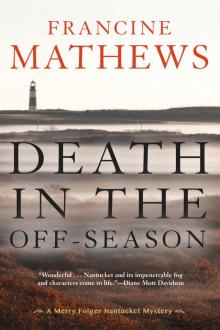 Death in the Off-Season
Death in the Off-Season Death in Rough Water
Death in Rough Water The Alibi Club
The Alibi Club Death of a Wharf Rat
Death of a Wharf Rat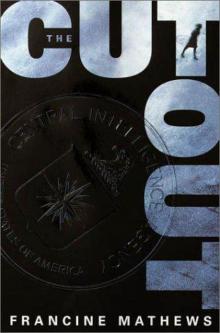 The Cutout
The Cutout The Secret Agent
The Secret Agent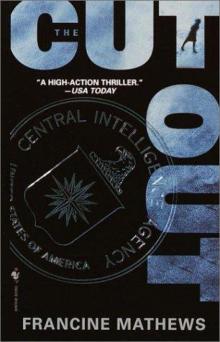 The Cutout cc-1
The Cutout cc-1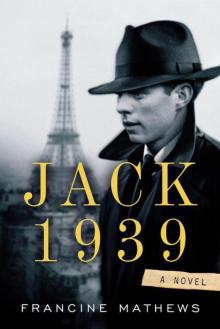 Jack 1939
Jack 1939 Death in a Cold Hard Light
Death in a Cold Hard Light Blown
Blown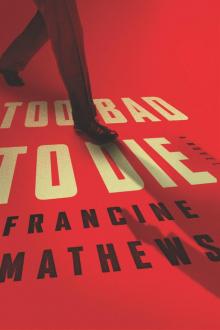 Too Bad to Die
Too Bad to Die